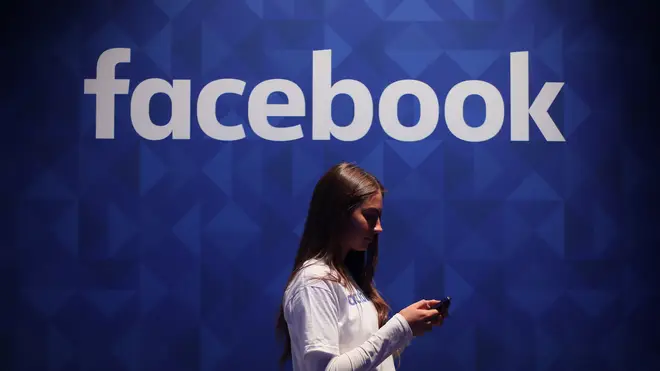
Ian Payne 4am - 7am
19 May 2021, 18:04

The social network’s latest Community Standards Enforcement Report has been published.
Facebook users are seeing less violent or graphic content and hate speech compared with last year, according to the social network’s latest report on how it enforces its rules.
The report said the firm had increased the amount of harassment content it had taken down.
The social media giant also confirmed it would work with audit firm EY on an independent assessment of the company’s content moderation systems, and announced the launch of its online Transparency Centre, which Facebook said gives the public more insight on how it creates and enforces policies.
The company, along with wider social media, has come under increased scrutiny during the pandemic over its approach to keeping users safe online and amid high-profile cases of online abuse, harassment, misinformation and hate speech.
The Government’s recently published Online Safety Bill is set to introduce regulation around Facebook and other online platforms for the first time, with firms facing large fines and having their sites blocked if they fail to adhere to a new duty of care to users.
According to the latest Community Standards Enforcement Report for the first three months of 2021, hate speech content on Facebook dropped from 0.07% in October last year to 0.05% this year.
The social network said this meant that the average Facebook user now saw between five and six views of hate speech content per 10,000 views.
Facebook pointed to its advancements in artificial intelligence (AI) used to find harmful content before it is found and reported by users as a key factor in helping it to remove more hate speech over time.
“When we first began reporting our metrics on hate speech in Q4 of 2017, our proactive detection rate was 23.6%,” Facebook vice president of integrity Guy Rosen said.
“This means that of the hate speech we removed, 23.6% of it was found before a user reported it to us. The remaining majority of it was removed after a user reported it. Today we proactively detect about 97% of hate speech content we remove.”
The report showed that in the first three months of 2021, the company took down 8.8 million pieces of bullying and harassment content, up from 6.3 million in the final quarter of last year.
Some 9.8 million pieces of organised hate content were also removed, up from 6.4 million in late 2020.
Meanwhile, 25.2 million pieces of hate speech were removed, down on the 26.9 million pieces removed in the last three months of 2020.
On Instagram, Facebook said it took down 5.5 million pieces of bullying content – up from five million at the end of last year – as well as 324,500 pieces of organised hate content, up slightly on the previous quarter.
However, the amount of hate speech content removed from Instagram was also down slightly to 6.3 million compared with 6.6 million in the last quarter of 2020.
The social media giant has previously admitted that its content review team’s ability to moderate content had been affected by the pandemic and that would continue to be the case globally until vaccines were more widely available.
Specifically on misinformation around Covid-19, Facebook said it had removed more than 18 million pieces of content from Facebook and Instagram for violating its policies on coronavirus misinformation and harm.